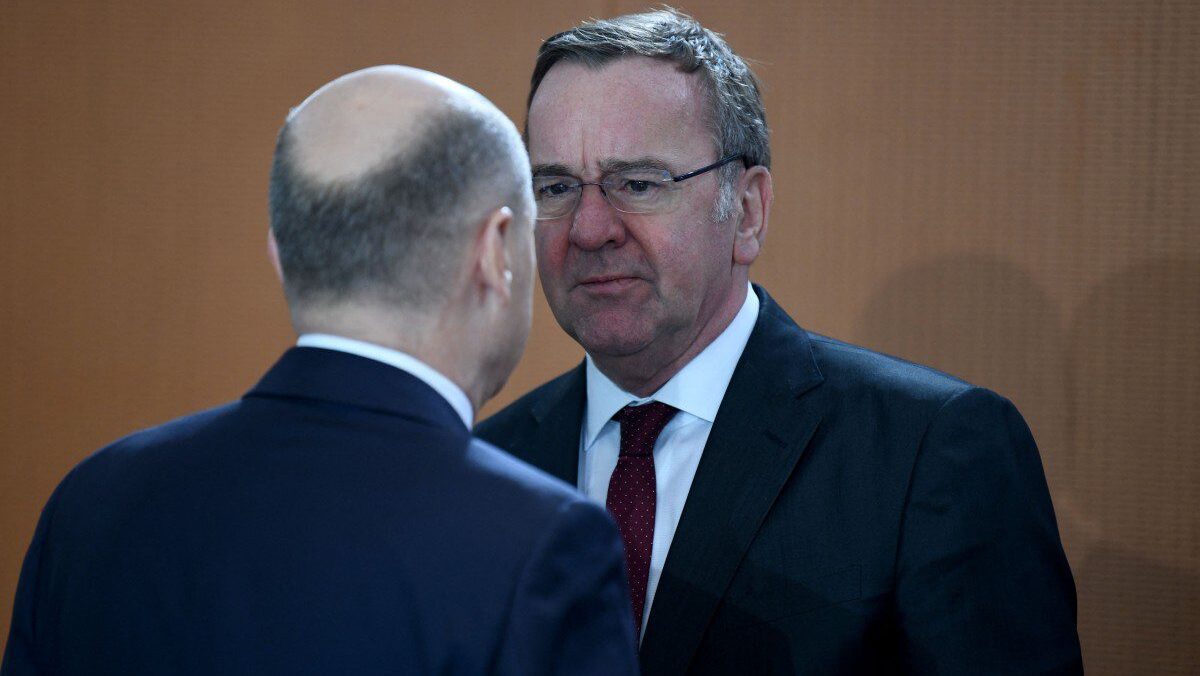
German Chancellor Olaf Scholz (L) and German Defence Minister Boris Pistorius
Photo: Ralf HIRSCHBERGER / AFP
New details have emerged of a discussion between high-ranking German officers that was hacked by Russian spies and leaked by Russian media last week. As we previously reported, the 38-minute discussion was apparently taken from a recorded video call between four German Bundeswehr officers and was published on Friday, March 1st by Russia’s state-owned RT channel. The recording shows the officers, including German Air Force chief Ingo Gerhartz and Brigadier General Frank Gräfe, discussing the possibility of sending Taurus cruise missiles to Ukraine and using them to attack the Kerch bridge connecting Crimea to Russia’s mainland.
Germany’s Defence Minister Boris Pistorius told reporters on Tuesday, March 5th, that the hacking of the discussion was made possible because one of the officers used an unsecured phone line at a Singapore hotel to join the conference call. The officer in question—identified by media as Frank Gräfe—had participated in the Singapore Air Show, which was attended by high-ranking military officers from all around Europe, and then dialled into the call using either his mobile phone or the hotel’s Wi-Fi—not a secured line, as is considered mandatory for such calls.
Aside from discussing the possible use of Taurus cruise missiles, the officers claimed that British troops on the ground in Ukraine had rigged up warplanes to carry missiles, supervised the loading of the weapons, and were helping to coordinate mission planning for strikes, The Times reports. The discussions included how Britain’s Storm Shadow and France’s Scalp missiles were already deployed in the country, and the fact that Britain is already handling the satellite data needed for Ukraine to program the missiles, writes Reuters.
German Chancellor Olaf Scholz, who is reluctant to get Germany too directly involved in the Ukraine war, has so far refused to send Taurus missiles to avoid further escalations. The fact that it was being discussed angered Russia, whose foreign ministry summoned the German ambassador to Moscow on Monday. Kremlin spokesman Dmitry Peskov said the recording itself is enough to prove “the direct involvement of the collective West in the conflict in Ukraine.” Former Russian President Dmitry Medvedev went as far as claiming Germany was preparing to attack Russia.
The revelations have increased pressure on social democrat Scholz to expand Germany’s support for Ukraine. Both his coalition partners, the Greens and the liberal FPD, as well as the opposition centre-right party CDU, have called on the chancellor to do so.
The leaks have also raised eyebrows in the capitals of allied nations, questioning whether Berlin can be trusted with handling sensitive information. “We know Germany is pretty penetrated by Russian intelligence so it just demonstrates they are neither secure nor reliable,” former UK Defence Secretary Ben Wallace told The Times. Opposition CDU politician Norbert Röttgen, former Chair of the Foreign Affairs Committee in the Bundestag, said the leak “massively damages [Scholz’s] credibility at home and leaves him a weak ally abroad.”
Security expert Frank Umbach told German public broadcaster ZDF that Germany has been “at the centre of hybrid warfare for many years,” because it is a major economic power in Europe. At the same time, Umbach claimed, “pro-Russian tendencies” in Germany were “always stronger” than elsewhere. The fear from abroad is that Germany’s ministries are riddled with spies, he added.
An investigation has been launched into the affair, but Boris Pistorius is refusing to sack his general, instead blaming Russia for the leak. “I will not sacrifice any of my best officers to Putin’s games, to put it very clearly,” he said on Tuesday.
Publicly, the White House also voiced its support for Germany. “This is a bold attempt and a transparent attempt by the Russians to try to sow discord and to try to show division, to try to make it look like the West isn’t unified,” National Security Council spokesman John Kirby said.
